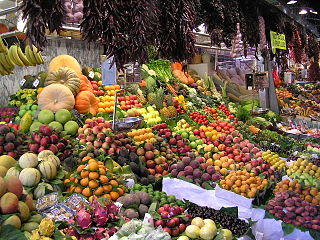
In Karl Marx's critique of political economy, commodity fetishism is the perception of the social relationships involved in production, not as relationships among people, but as economic relationships among the money and commodities exchanged in market trade. As such, commodity fetishism transforms the subjective, abstract aspects of economic value into objective, real things that people believe have intrinsic value.
The theory of commodity fetishism is presented in the first chapter of Capital: Critique of Political Economy (1867), at the conclusion of the analysis of the value-form of commodities, to explain that the social organization of labor is mediated through market exchange, the buying and the selling of commodities (goods and services). Hence, in a capitalist society, social relations between people—who makes what, who works for whom, the production-time for a commodity, et cetera—are perceived as economic relations among objects, that is, how valuable a given commodity is when compared to another commodity. Therefore, the market exchange of commodities obscures the true economic character of the human relations of production, between the worker and the capitalist.